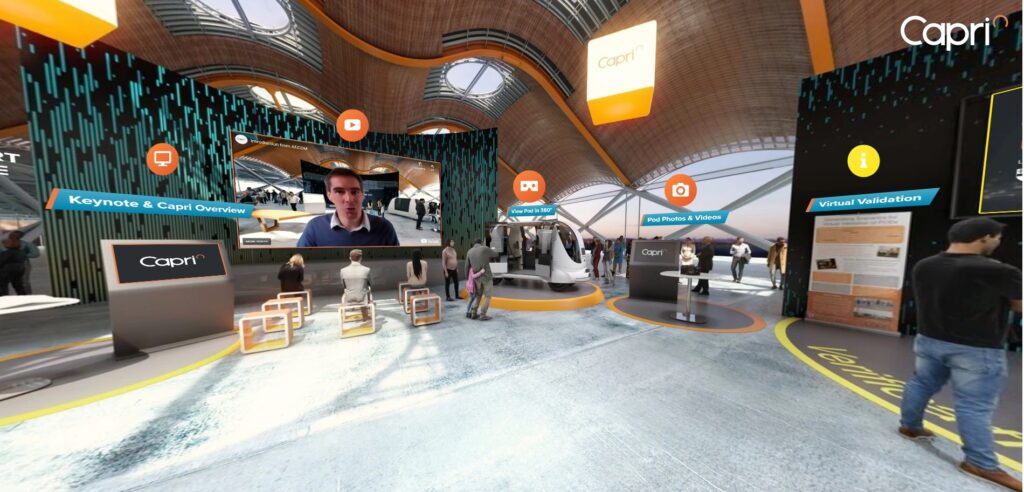Showcased in a virtual museum, the Capri Project research findings recommend further cross-sector collaboration and coordinated strategic investment to build public, market and regulatory support for Connected and Autonomous vehicles
Capri, the AECOM-led three-year research and development project aimed at building public, regulatory and market trust in autonomous vehicles has concluded its pilot with a business case and service blueprint designed to support the future commercial use of autonomous vehicles in public settings such as airports, hospitals, business parks and shopping centres.

The consortium is now calling for more cross-sector collaboration and coordinated strategic investment to push forward the emerging market for Connected and Autonomous Vehicles (CAVs) and enhance business and regulatory confidence in the technology.
The Capri pilot, which was partly funded by the Centre for Connected and Autonomous Vehicles (CCAV) and delivered through Innovate UK, was the first project to publicly trial autonomous vehicles with passengers in busy pedestrian areas and on private roads with a remote steward.
Bringing together academic institutions, businesses, SMEs and public sector authorities, Capri has designed, developed and tested autonomous pods, gaining a wealth of knowledge on their viability and potential future uses. By developing the safety, legal and regulatory contexts surrounding the new technology, as well as assessing the infrastructure requirements for deployment, the research will help investment decision-making and reduce barriers to market for future commercial CAV applications.
Now, key materials, information and findings of the research will be exhibited in a virtual museum, enabling industry and the wider public to explore the project and engage with Capri consortium partners. Launching today, the interactive web-based museum is designed to capture and share vital lessons learned and successes of the project.
David Tozer, Head of Land Transport, InnovateUK, said: “The Capri project is a great example of building confidence in autonomous vehicle technology from a passenger, user and wider transport perspective. Delivering Capri was only possible through a strong business and academic collaboration which spanned the UK’s automotive and mobility sector. It has again shown the strength in depth and capability of this emerging industry in the UK. The Virtual showcase has helped pull the project’s successes together, highlighting them to a global audience”
George Lunt, Technical Director, AECOM and Capri project lead, said: “Through our extensive research and autonomous vehicle trials, we have gained important lessons that will help pave the way for the future use of CAVs as part of inclusive and integrated transport systems. Our research will aid investment decision-making around the technology, but it is vital that cross-sector collaboration and coordinated strategic investment, particularly at this early stage, continues if the UK is to drive this emerging market.
“Key to its success is building passenger, regulatory and market confidence. Open to everyone, we hope our new virtual museum will help build trust and momentum for future autonomous vehicle services in the UK.”
The Capri virtual museum is available here. The exhibit includes unreleased trial footage, interviews and evidence-based findings from simulations and real-life testing. On display are insights from advisory groups and user acceptance surveys, as well as information on the opportunities and barriers to market on regulation, security and user experience. The museum also includes a 360-degree tour of a pod’s interior and exterior.
